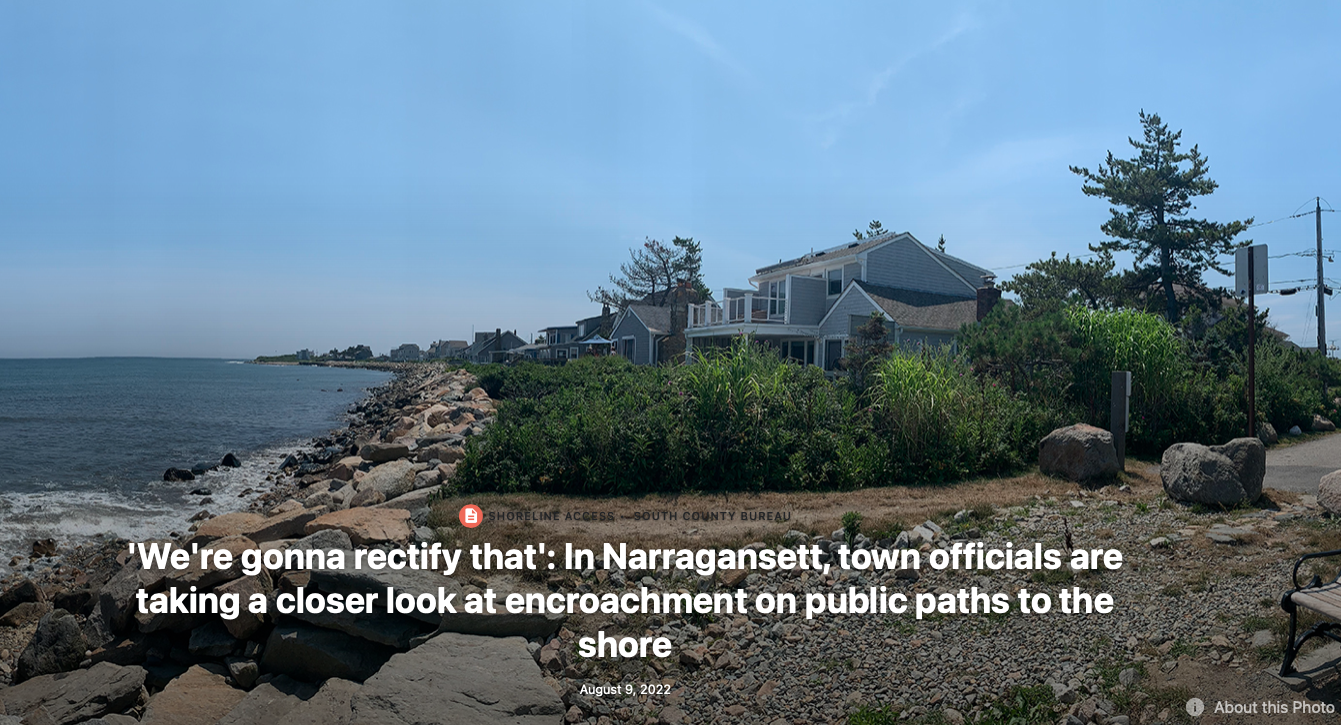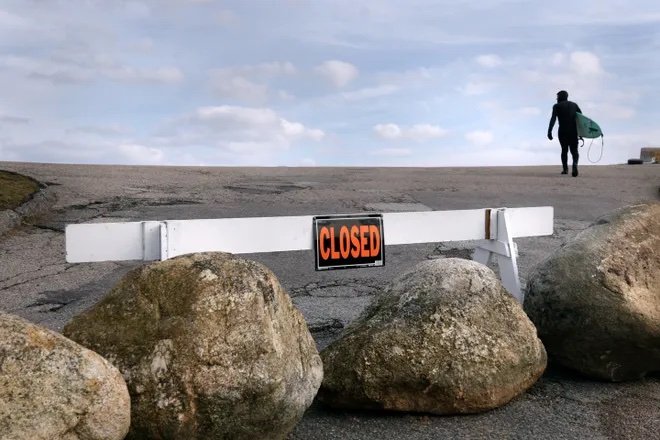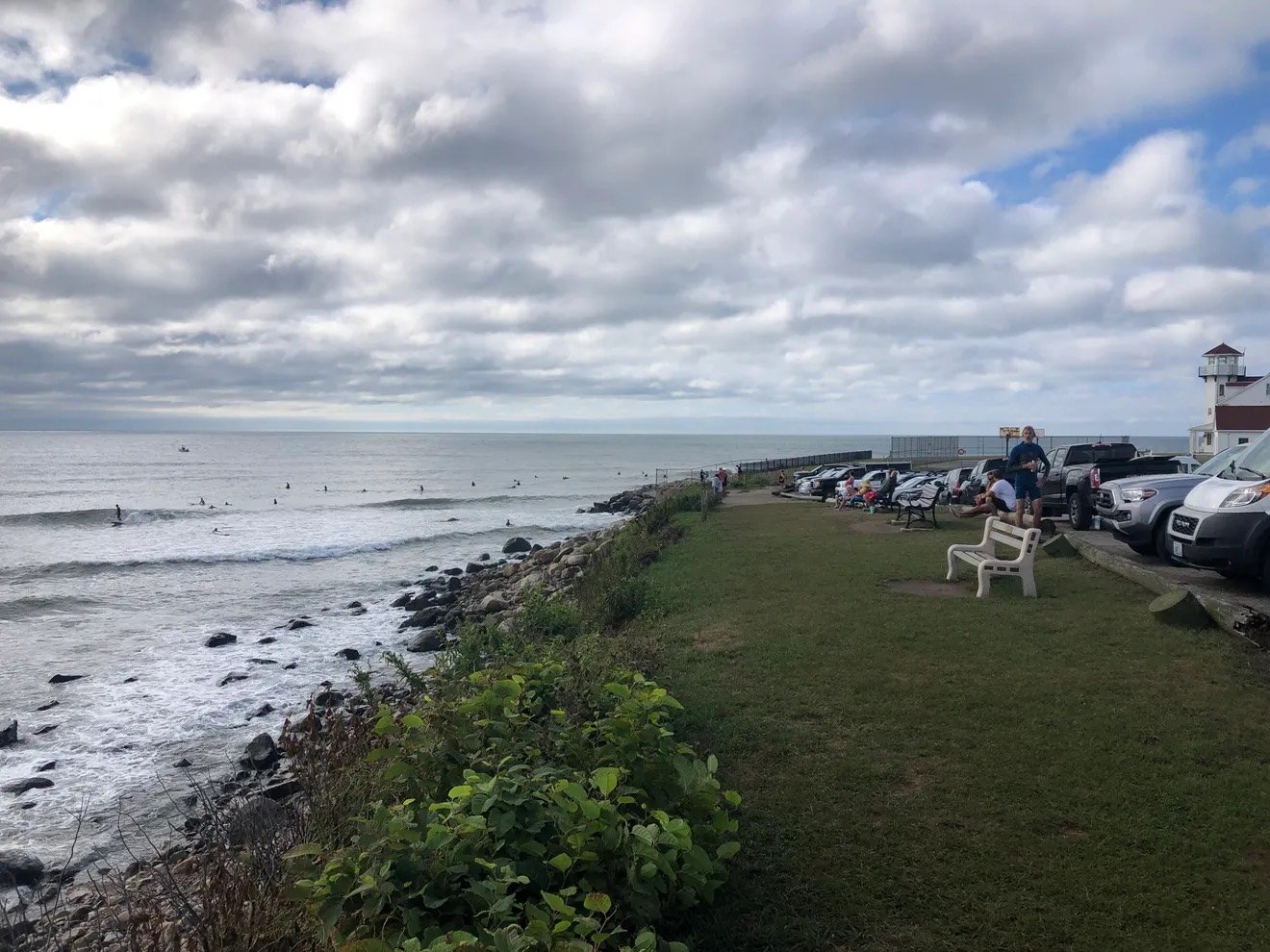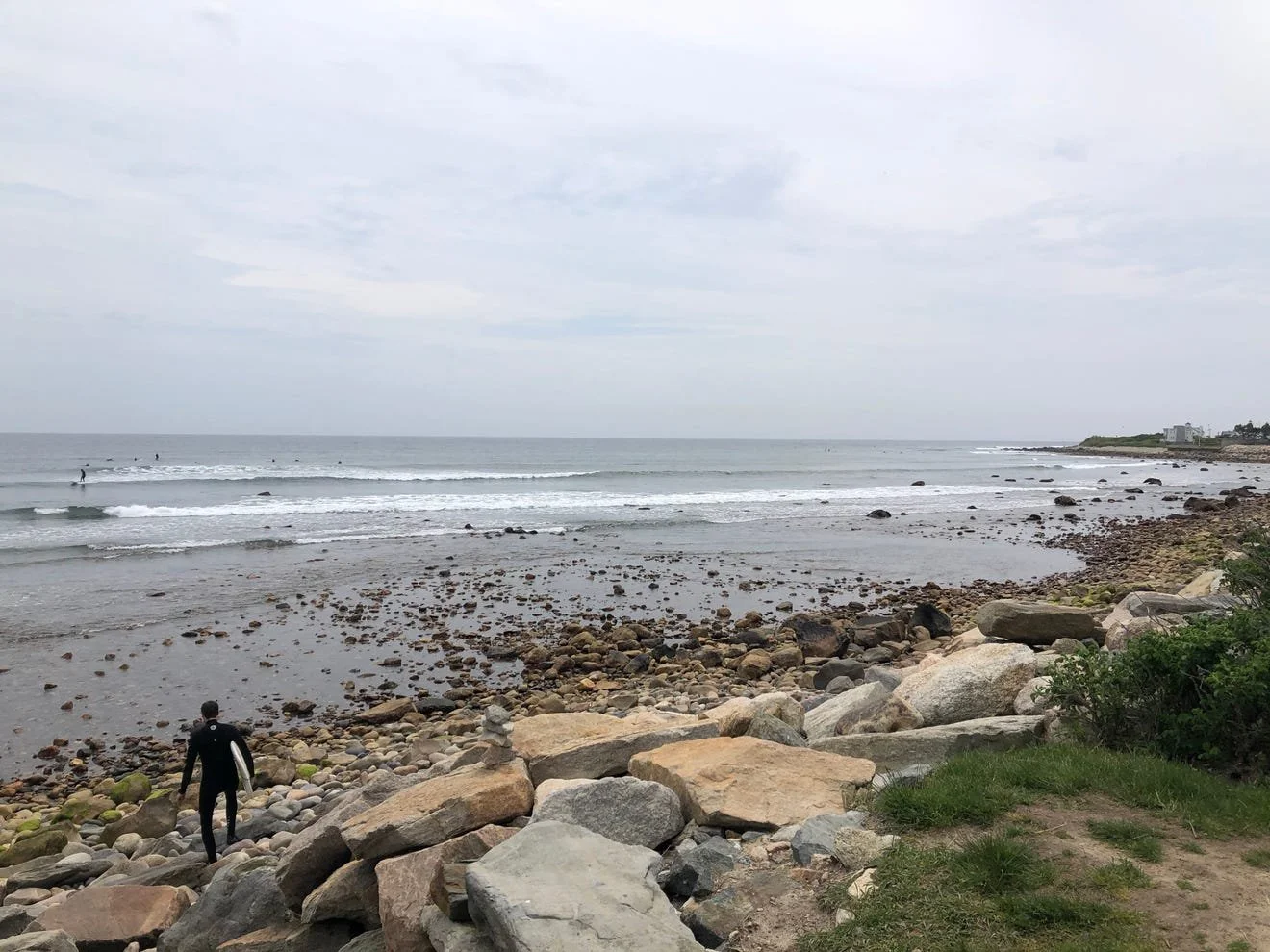
Point Judith Avenues
WIN.
Overview.
1970s
Public access points at “The Avenues” in Narragansett are utilized frequently, particularly by the surf community starting in the 1970s. Parking at the ROWs accommodates just a few cars, while others park along the roadsides when waves bring multiple visitors to the neighborhood. This relationship between surfers and neighborhood residents goes on relatively harmoniously and without incident for decades.
2002
First parking complaint on record. While the streets are considered a “No Parking” zone on paper, there are generally no posted signs or notices, and local police rarely enforce the ordinance unless there is a complaint.
2012
Following Hurricane Sandy in 2012, and at the realization that the undersized width of several roads would not accommodate emergency vehicles, the town posts “No Parking” signs in multiple locations throughout the neighborhood.
2019
With a few new residents in the neighborhood, calls to enforce parking increase, and new attention is brought to the “No Parking” signs in place, which comes as a particular surprise to the surf community whose habits had been largely unchanged for almost 50 years.
Fiery debates ensue between the residents — some of whom have no issue with the existing community relationships, while others challenge the intrusion of those they consider not part of the neighborhood — and coastal access advocates who contend the public ROWs are ineffective without reasonable parking allowances.
While Narragansett Town Council (NTC) meetings draw a packed house, and multiple workshops are held to find a resolution, many actionable motions fall dead on 3-2 votes across NTC party lines.
2020
Public pressure makes this topic a campaign issue moving into the 2020 election year. The COVID pandemic only inflames the problem as restrictions continue to be implemented or changed, limiting outdoor access in general.
Local elections flip over half of the NTC, resulting in 5 elected officials sympathetic to coastal access activists and the call for a reexamination of parking ordinances at the Avenues.
Before the Town Council can make any changes, a petition from 29 Avenues homeowners forces another hearing in May 2021.
2021
Thanks to the initiative by Councilmember Jesse Pugh, there is a newly established Coastal Access Improvement Committee on the NTC, which includes policy makers as well as community members.
The May Town Council hearing concludes after two hours of public comment, with a 5-0 vote passing an ordinance to amend parking restrictions. Select homeowners continued to attempts to amend the parking ordinance are thrown out.
In July 2021, neighborhood homeowners Dina DiRuzzo and Carol LaClair (represented by Nicholas J Goodier and John Oreste Mancini) filed suit in Washington County Court against the NTC (Case No. WC-2021-0258). They lost, and the parking allowances were upheld in court.
2021 Petition from select neighborhood homeowners in an effort to overturn Narragansett Town Council vote for parking:
2022
The select neighborhood homeowners DiRuzzo and Laclair — who filed suit in 2021 against the newly allowed parking ordinances established by the NTC — lost their case in Superior Court.
The decision by Judge Taft-Carter reinforced the steps taken by the NTC to properly restore parking to the area, and stated:
“…the Council enacted the Amended Parking Ordinance based on the need to provide improved coastal access in accordance with the Town's Comprehensive Plan.”
The newly established Coastal Access Improvement Committee also released it’s first CAIC annual report for 2022 listing its responsibilities, goals, accomplishments, and ongoing projects.
Where we are now.
—PUBLIC ACCESS WIN—
Continued public pressure resulted in meaningful change at the local level with the 2020 elections.
The NTC passed an ordinance allowing parking from 5am–9pm along south side of Conant Ave, north side of Pilgrim Ave, south side of Louise Ave.
In 2025, proposed bill H 6093 introduced by Rep Terri Cortvriend would set requirements on municipalities when looking to alter parking near designated CRMS Rights-of-ways.
This is just one small solution in a much larger infrastructure problem, which must be monitored and assessed for the longer term.
“The idea of widening the roads and adapting roadways to be complete streets and increasing public transportation within town isn't a threat, it's just what needs to happen for the health of our community long term.” — Alana DiMario (RI Sen Dist 36)
“…reasonable and permanent parking for the public would protect the interests of all in Rhode Island”
— Dave McLaughlin of Clean Ocean Access
Press












